Whether you know anything about cooking, you must know that olive oil is a must-have! But, do you ever wonder what you can do with the extra olive oil in the bottle after cooking a big meal? In such times, “Can you pour olive oil down the drain?” must’ve popped up in your mind! Here, I will share all you need to know about it!You should not pour olive oil down the drain. This creates buildup along your drainage pipes, which could result in a blockage. If you want to know more about why it’s unsafe, I will share the details in the rest of the article. There is a proper method to disposing of olive oil, whether it has gone bad or you have some leftovers.
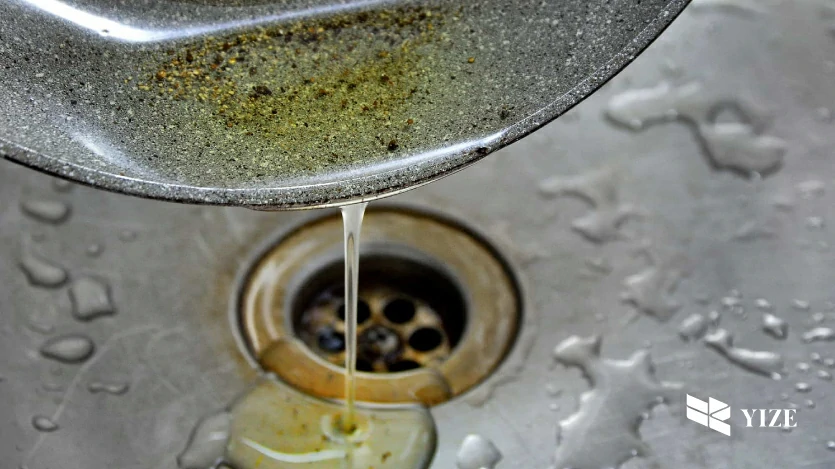
Why Should You Not Pour Olive Oil Down the Drain?
Not only can olive oil cause clogs in your pipes, but it can also damage the environment if it ends up in a waterway.
If you’re in a rush, you could think that it may be safe to dispose of olive oil down the drain like any other liquid. But make sure to never, ever, ever dump olive oil down your drains! Olive oil forms a sticky film inside the drain like any other cooking oil. This sticky film can then attract and trap other debris that could clog the pipe.
Additionally, olive oil may freeze into clumps when cool. It happens when the temperature drops below 40 degrees Fahrenheit. And clog your pipes. Olive oil will coat the pipe’s interior and muck them up even if the temperature does not drop that low. A buildup of this substance can obstruct your pipes and make them less effective. No matter what scenario, you may need a hefty plumbing cost to remove the olive oil from your kitchen pipes. No doubt, none of us want to hire a plumber to fix a clogged drain caused by olive oil!
Things You Can Do With Used Olive Oil
Rather than disposing of it after you finish, why not look for alternative methods of using the oil? Several simple alternatives exist to pouring olive oil down the drain. Try the following ones instead of damaging your kitchen drains:
1. Reuse the Olive Oil
Recycling it is your best bet if you plan on using olive oil for cooking. Reusing vegetable oil is a terrific way to save money. And also stretch your supply further. But few people know about it.
Oil loses flavor, nutritional value, and harmful chemicals when you apply heat. Unfortunately, this degradation accelerates at high temperatures. For this reason, it’s best to cook in oil for only a few minutes at a time and low temperatures.
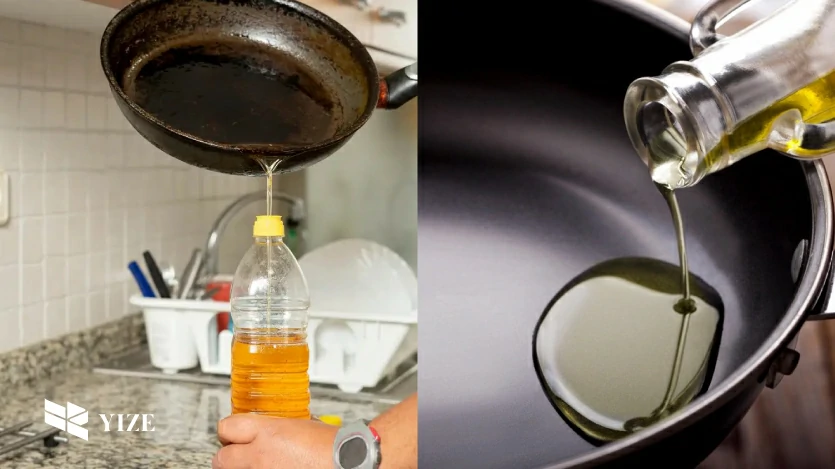
But, researchers have discovered that olive oil lasts longer than other vegetable oils. It has a low oxidation temperature; In other words, it’s perfect for recycling.
One last thing you should remember before recycling oil is only to use it for similar dishes. Cooking oil absorbs some of the flavors of whatever is fried in it. So recycling oil from one dish to cook another may compromise the other dish’s taste.
2. Recycle!
Recycling your old olive oil is another alternative. Yet, you can’t throw your used oil into the curbside recycling bin with the rest of your paper and plastic. You can guess that restaurants use a lot of vegetable oil. But, there are businesses dedicated to collecting this oil. They purify it and transform it into biodiesel fuel. Seeing if any nearby recycling sites will accept your modest amount of used cooking oil is as easy as making a quick phone call. If it doesn’t work, try asking at a nearby eatery.
3. Compost It!
Composting is another option if you don’t want to reuse or recycle your used olive oil. Few people know this, but you can compost little vegetable oil along with other food scraps. Composting can be trickier with some food items, for example – vegetable oil! dumping a massive amount onto your compost pile is not good since it can lead to several problems.
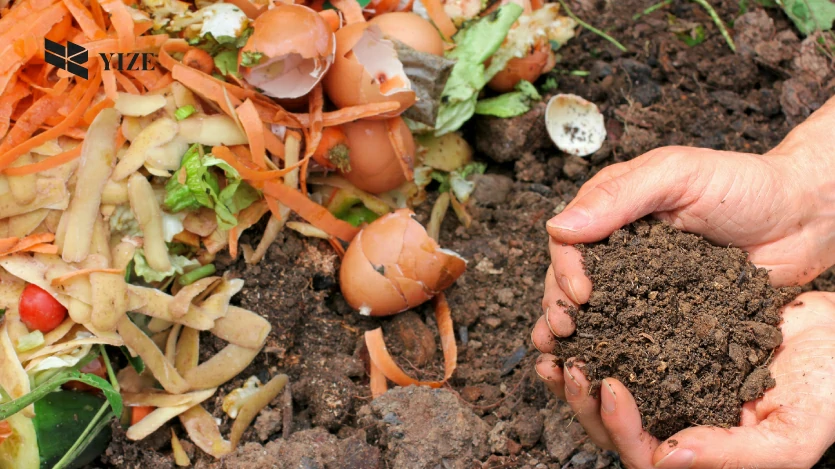
Composting using a lot of cooking oil might hinder airflow and delay the decomposition of other materials. The rotting food may attract pests you don’t want to have around! Add only a little olive oil to your compost pile at a time. Using paper towels, remove any excess oil and cut them up into small pieces to compost.
4. DIY Olive Oil Soaps!
Many people have started making soap at home because it is so popular. You can use olive oil to create a natural soap from the comfort of your home. But exercise caution if attempting this at home, as it can be a long process! Olive oil is all you need if you want a firm bar that is gentle, nutritious, and won’t strip your skin. The lather is different from what you may expect. Some might call it creamy, while others might describe it as slimy. It doesn’t produce the same volume of bubbles as castor oil or coconut oil. But you can enjoy making it and using it nonetheless.
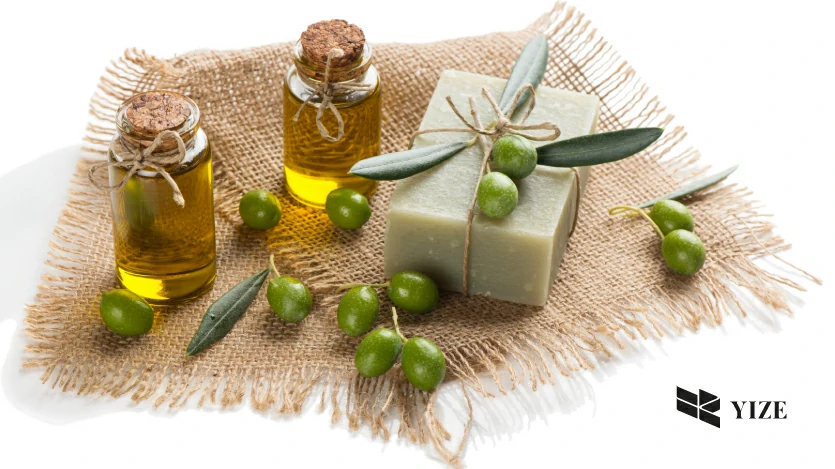
5. Throw It Away!
You may toss out your used olive oil when all else fails. , most of us never even entertain the idea that there could be other possibilities. And if you would like it to keep it that way, then why not!
But, you can save yourself some time and money by avoiding the following mistakes.
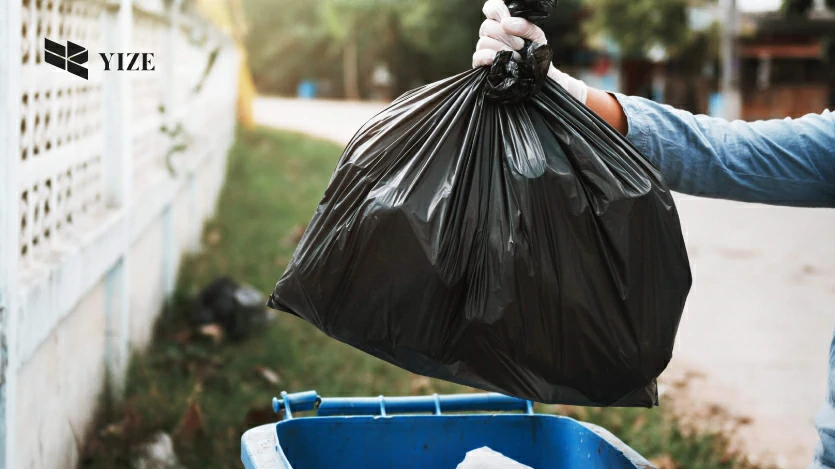
- When the oil is hot, it is even more dangerous to dump it into the trash. Avoid doing this, as it will result in a mess and leakage from the bag.
- Store the leftover olive oil in a container. You can save the oil here until you have a suitable amount to transport it elsewhere.
- Put your used olive oil in the fridge to harden before disposing of it. You can skip this step if you like, but doing so will reduce the likelihood of a garbage can explosion.
How Can You Dispose of Olive Oil?
Olive oil, like all oils, doesn’t wholly dissolve when put in water. Instead, it stays afloat and forms an emulsion. The fat particles will stick to the pipe walls as you flush the emulsion down the drain! So how can you dispose of it in the safest way possible? The following are the easiest and safest ways to dispose of olive oily:
1. Let it Solidify
As I have mentioned above, olive oil will harden when you let it cool down below a specific temperature. So why not use this to your advantage?
You can use this natural process to dispose of olive oil in the safest way possible! Now, wait for your leftover olive oil to solidify. Once the oil is solid enough, wipe away the excess oil with a paper towel and throw it in the trash bin.
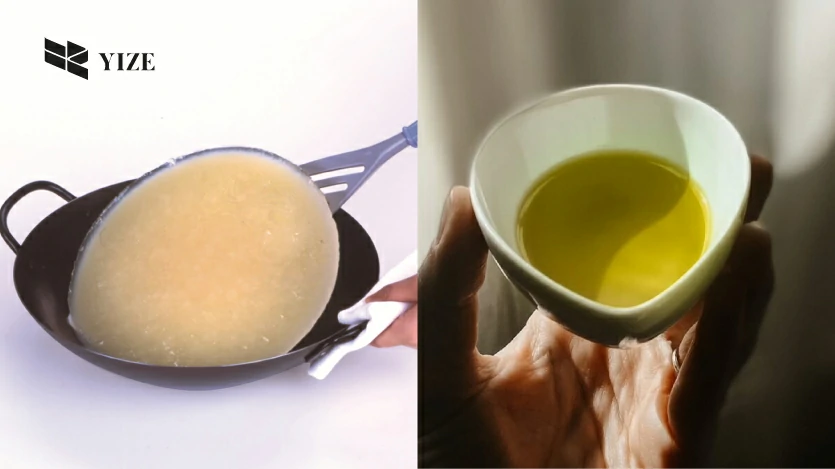
2. Freeze it!
You also have the option of freezing your leftover olive oil. You can either throw it away after freezing it or put it in the freezer to recycle it for future use.
Make careful to move it to a new container if you intend to freeze it. Unfortunately, glass containers break in the freezer. Make sure to avoid using them for this purpose. If you want to store it in the bottle it came in, make sure the lid is tight.
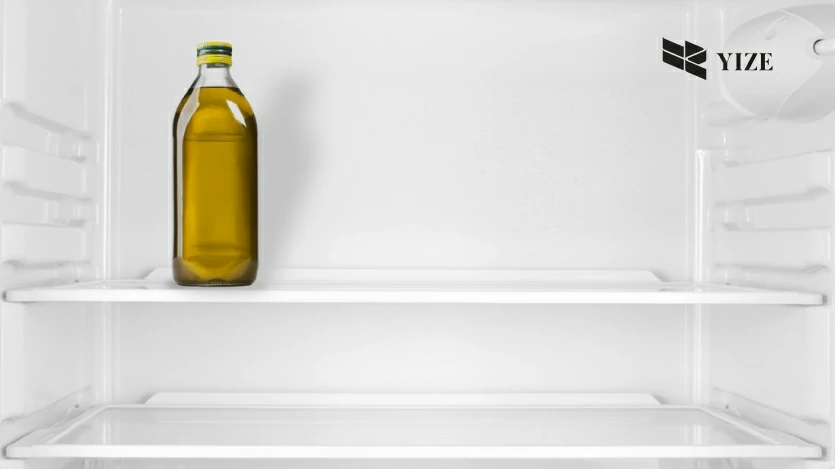
3. Mix Into Your Compost as a Supplement
Since extra virgin olive oil is organic, you can compost it with other vegetable oils. But too much of it can hinder or stop biological processes, so proceed cautiously!
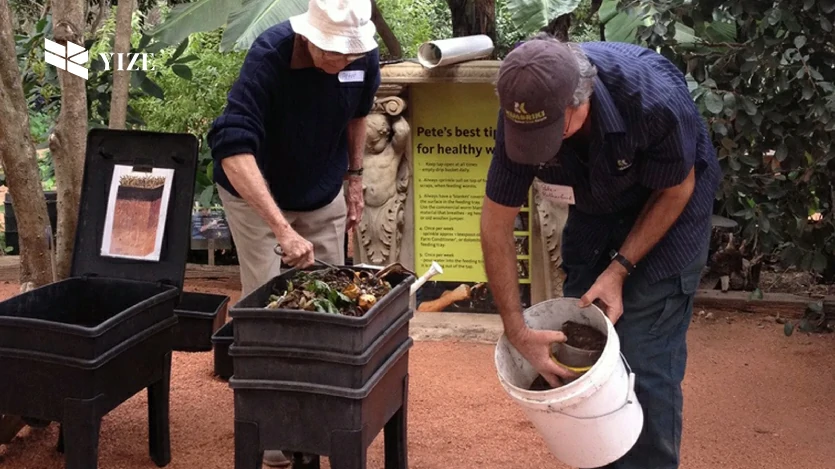
The ideal approach is to apply it gradually, a little bit at a time. Mix it in well so it becomes a part of the compost. Dumping significant amounts of olive oil over the soil can harm the ecosystem. So it’s best not to choose this option for a lot of olive oil!
4. Install a Grease and Oil Disposal System
Many of us use olive oil almost every day. So, installing a grease and oil disposal system might be your best bet!
All commercial kitchens are equipped with a grease disposal system. You can even set it up in your own house! You can store up to two pounds of oil in a grease disposal system’s system kit before the kit needs to be swapped out.
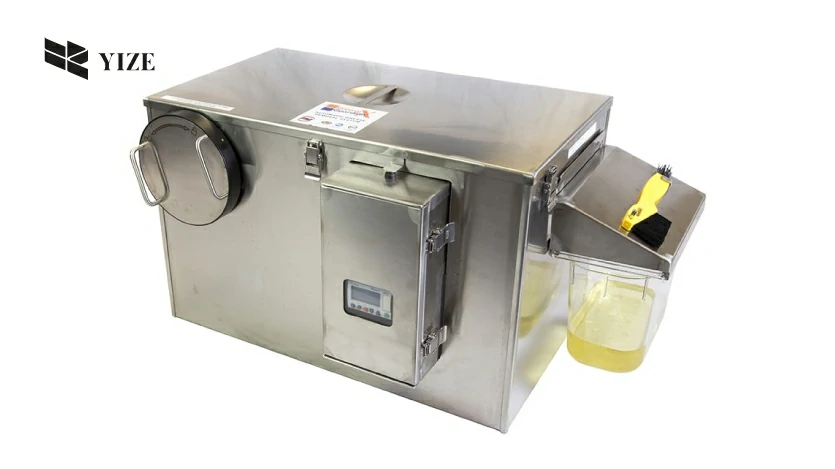
What Can You Do if You Have Already Poured Olive Oil Down the Drain?
You better act fast if you have been flushing grease or olive oil down your kitchen drain till now. It will solidify, so it’s best to take action immediately! Here are some tips on removing the oil from your drain pipes.
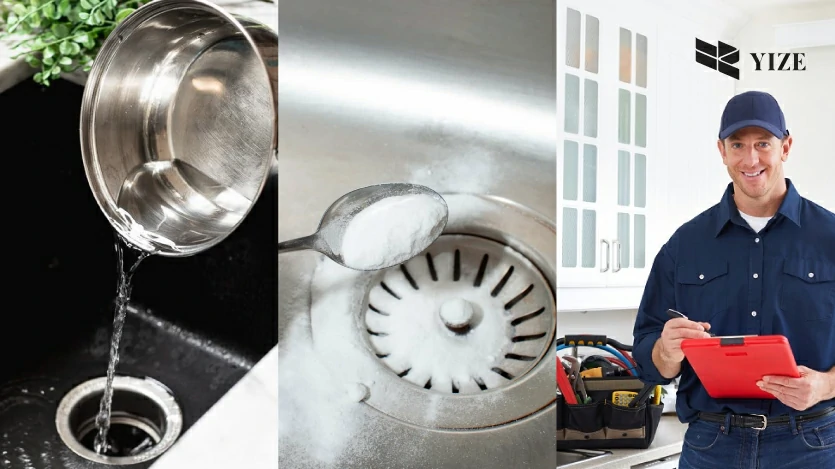
Wash It Out With Hot Water
Put some water in a kettle and boil it on the burner. Now, gradually pour the water down the drain.
By heating the grease, it will soften and melt, eliminating the potential for blockages to form. The olive oil should wash out.
Use a Solution of Vinegar and Baking Soda
Measure a half-cup of baking soda and pour it down the drainage. Then, flush the drain with half a cup of white vinegar. There should be hissing and bubbling as this mixture travels through the drains. Cover the drains after pouring the contents for around 10 minutes. After that, run one pot of boiling water down the drain to clear it out.
It is possible to create glycerin and soap from fatty acids by dissolving them in vinegar and baking soda. Simply put, they do an excellent job of avoiding blockages. However, avoid using this technique when water is pooling. Or when you use a commercial drainage opener. Doing so can lead to harm and burns to your eyes or face.
Call for Professionals!
If all else fails and you are now stuck with a clogged kitchen drain, it’s time to call a professional plumber. No doubt, it may cost you a lot!
But it’s the safest option if you don’t know what to do! Avoid doing anything you don’t know much about. Or not you might cause an even costlier issue.
Conclusion
After a grand meal, it’s not unusual to have some leftover olive oil that you have no idea what to do with. So in case you were wondering whether or not can you pour olive oil down the drain, you should have your answer by now.
Pouring olive oil down the drain can lead to clogs and expensive repairs. Therefore, you are better off using our alternative safe oil disposal methods.

